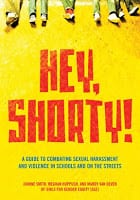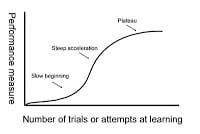I don’t love one of my girls more than the other. But I do treat them differently. I wish it weren’t so, but I have to say that I am not sure it is unusual or wrong. Since the first day Eve opened the door a crack to let her personality out I saw myself. When she was two and we battled over naps or bedtime or dinnertime, the crumpling of her eyebrows, the concrete set of her intentions – that’s me. The absolute need to be Right and Win, my particular Kari cocktail running through her veins. Over the years I have worked to remind myself that these traits will serve her well in her life. They will allow her to stand her ground even when she is feeling shamed or alone in her convictions. In our daily interactions, they often lead to unpleasant stand-offs between the two of us and I am left desperately searching the recesses of my brain for ways to temper some of Eve’s most problematic qualities. As I see them.
Which leads me to the knowledge that what I consider to be her most difficult personality traits are the things I hate most about myself. I cringe in shame as I remember times when I rushed, face first into an argument with someone else, convinced I had The Answer and determined to prove the other person wrong only to discover that there were things I didn’t know. Possibilities I hadn’t considered. Or, worse yet, maybe I was “Right,” but in my quest to render that fact in indelible ink, I trampled someone else’s feelings or disregarded their self-worth. I see Eve wearing a path in that meadow, back and forth, more often than not between her bedroom and Lola’s.
Yesterday as I sat on the back porch with my book, soaking up the sunshine, Lola quietly made her way to my side and sat down, forearms crossed over her eyes in a familiar pose of misery. I put my book down and turned to her as she parted her elbows to give me a glimpse of wet, full eyes. She and Eve had fought in front of Eve’s friend and Lola, embarrassed, shoved her and stormed out of the room. Eve followed, some angry words were exchanged, and Eve slapped Lola on the arm. I don’t know how hard she hit her or what they said to each other and, frankly, as soon as I heard that Eve hit her little sister, I stopped listening. I knew I couldn’t punish her in front of her friend and I had the presence of mind to know that any consequence I came up with needed to not come from anger. And I was angry. Really angry.
The depth and breadth of my anger was out of proportion to the incident. I realized that. There was a heaviness in my lower gut that led all the way up to the set of my jaw. I was furious with Eve. Despite what went before, how could she hit her sister! Would I be this angry if she had hit someone else? Nah, that’s not even a question. She would never hit anyone else but her little sister. That realization made me even angrier. I sat on the deck steps, my arms around Lola as her tears dotted my shirt, and fumed.
An hour later, standing at the kitchen counter chopping zucchini for dinner, it hit me. I was angry with Eva because, as the oldest sister, she is supposed to protect Lola, not hurt her. Wait. That was my life. My childhood.A door opened. The thoughts came swirling out like smoke rising from a campfire – as a kid, my siblings and I stuck together so that none of us would get hurt. And even when we did get hurt, we didn’t go it alone. We had each other. We stuck up for each other and looked out for each other and took care of each other. It kills me to see my girls fight. The thoughts bumping up against the ceiling of that hatred for their arguments tell me that, someday, they will be all each other has. Their sibling bond is stronger than anything. Through breakups and fights with close friends and disappointments they are too embarrassed to share with anyone else, they will have each other and they need to protect that bond at all costs. And Eve, as the oldest sister, is charged with being the gatekeeper. The key holder.
Or is that me? When I see so many similarities between us, I wonder if I too often mistake her for a miniature me. Despite the fact that her childhood is not mine, her life is not mine, I think I may be, in some way, reliving my childhood vicariously through her. All of the times I mentally assaulted myself for not doing enough to protect my baby sister, Eve could fix by taking care of her sister better than I took care of mine. And here was the source, the wellspring of my anger. I was upset because I would never have done anything to hurt my little sister. I had given myself the job of protecting her and couldn’t imagine doing anything to make her life more difficult or challenging than it was already.
But Eve is not me. And her childhood is not mine. And I have no right to expect her to fix the mistakes I made in my life by doing them over better. There is some Bubba in this gorgeous girl, too, and I need to honor that. But more than anything, I need to honor the Eva in Eva and allow her the freedom to explore who she wants to be outside of the boundaries I might think of for her.









